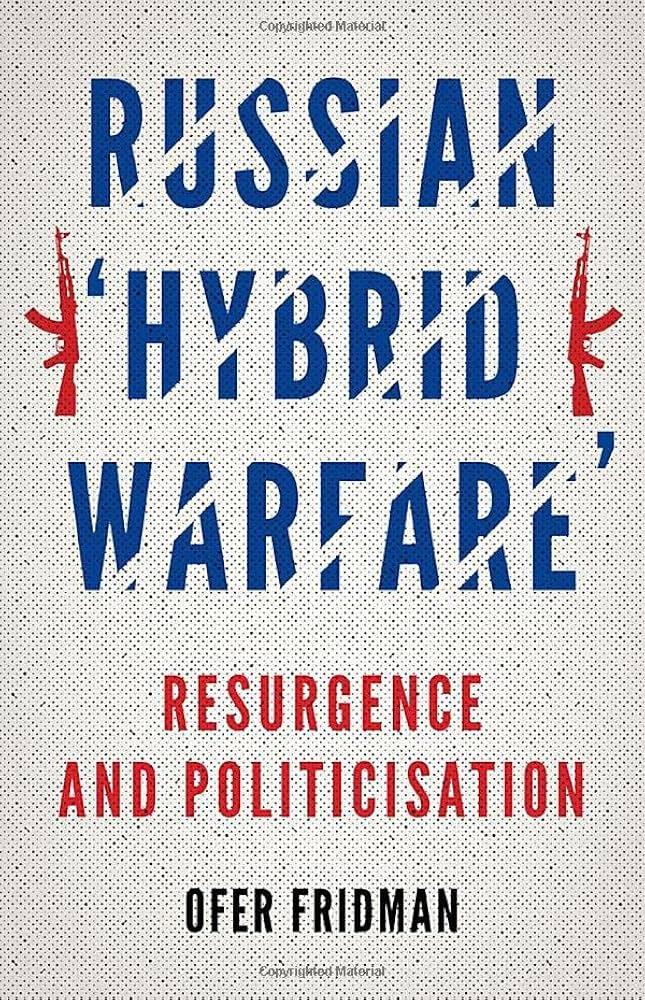In the wake of escalating tensions between Russia and Western nations, European Commission President Ursula von der Leyen has issued a stern warning regarding the need for a robust European response to what she terms “hybrid warfare.” As reports of disinformation campaigns, cyberattacks, and covert operations continue to emerge, von der Leyen’s remarks underscore the urgency of fortifying the EU’s collective security strategy. In a landscape defined by both traditional and unconventional threats, European leaders are being called upon to unify their efforts and effectively counteract RussiaŌĆÖs multifaceted approach to warfare. This article delves into von der Leyen’s assertions and explores the implications of hybrid warfare on European security and political stability.
Understanding Hybrid Warfare: The Urgent Threat Posed by Russia
As the geopolitical landscape shifts, understanding the complexities of hybrid warfare has never been more crucial. Russia has adeptly harnessed a blend of conventional military might, cyber operations, and disinformation campaigns to challenge the stability of Europe and its allies. This multifaceted approach complicates traditional defense strategies, making it imperative for the EU to develop more nuanced responses. Key elements of Russia’s tactics include:
- Cyber Attacks: Disrupting critical infrastructure and sowing discord through coordinated cyber offensives.
- Disinformation Campaigns: Utilizing social media and other platforms to spread false narratives and undermine public trust.
- Proxy Conflicts: Supporting separatist groups and using mercenaries to engage in combat while maintaining plausible deniability.
To combat these threats, EU leaders are calling for a cohesive strategy that not only addresses military preparedness but also prioritizes resilience against misinformation and enhances cybersecurity. Recommendations for immediate action include:
| Action Item | Description |
|---|---|
| Boost Cyber Defense | Invest in cutting-edge technologies and training for cybersecurity personnel. |
| Counter Disinformation | Establish a dedicated task force to monitor and counteract false narratives. |
| Strengthen Alliances | Enhance cooperation with NATO and other global partners to present a united front. |
EU’s Strategic Imperative: Strengthening Cybersecurity and Defense Mechanisms
The European Union is at a pivotal juncture, compelled to bolster its cybersecurity frameworks and defense strategies in the face of escalating hybrid threats. The recent statements from EU Commission President Ursula von der Leyen underscore the urgency for a cohesive response to tactics employed by adversaries such as Russia, which blend cyber incursions with disinformation campaigns. To counter these multifaceted challenges, the EU must prioritize the development of a robust cybersecurity architecture, encompassing both preventive measures and responsive capabilities to safeguard its member states.
Critical areas that require immediate attention include:
- Investment in Cyber Defense Technologies: Enhancing existing systems and integrating cutting-edge technologies to fortify the EU’s digital front.
- Strengthening International Cooperation: Collaborating with global partners to share intelligence and best practices on cybersecurity threats.
- Public Awareness Campaigns: Educating citizens about the risks associated with hybrid warfare and promoting vigilance against misinformation.
Furthermore, the EU must consider establishing a centralized body that oversees cybersecurity policy implementation across all member states, ensuring that resources are allocated efficiently and that protocols for crisis management are standardized. Such initiatives could significantly strengthen the EU’s resilience against ongoing and future security challenges.
Fostering Unity Among Member States: A Collaborative Approach to Deterrence
In light of the escalating challenges posed by Russia’s hybrid warfare tactics, it is imperative for EU member states to strengthen their collaborative frameworks. A unified response is crucial not only for safeguarding individual nations but also for maintaining the integrity of the European Union itself. Through joint exercises, intelligence sharing, and the establishment of a coordinated defense strategy, member states can create a formidable front against evolving threats. A focused dialogue emphasizing mutual interests will enhance solidarity and diminish the risks associated with divided responses.
Key initiatives can significantly bolster this unified approach, such as:
- Enhanced Intelligence Collaboration: Sharing tactical insights and threat assessments can lead to a more informed decision-making process.
- Resource Allocation: Pooling resources for cybersecurity and defense infrastructure to counteract hybrid warfare effectively.
- Public Awareness Campaigns: Engaging citizens in understanding hybrid threats will foster resilience and support for collective initiatives.
To track progress in these areas, a dashboard of collaborative efforts among EU states can be developed. This would allow for transparent monitoring of advancements, showcasing member contributions to a cohesive strategy:
| Member State | Key Initiative | Status |
|---|---|---|
| Germany | Intelligence Sharing | Ongoing |
| France | Cybersecurity Investments | Initiated |
| Italy | Public Awareness Campaign | Planned |
Promoting Resilience in Civil Society: Empowering Citizens Against Disinformation
The ongoing threat of disinformation as a tool of hybrid warfare has prompted urgent calls for a coordinated response from the European Union. The complexities of this modern battlefield require not just legislative action but also a grassroots movement to arm citizens with the tools needed to discern fact from fiction. Community initiatives can play a pivotal role in enhancing media literacy, enabling individuals to critically evaluate sources, and promoting transparent communication channels in an age where misinformation spreads like wildfire.
Effective strategies must be implemented to fortify civil society against these insidious threats. Among these strategies are:
- Educational Workshops: Facilitate regular sessions aimed at improving digital literacy.
- Fact-Checking Collaborations: Partner with independent organizations to create local fact-checking networks.
- Public Awareness Campaigns: Launch initiatives that highlight the dangers of disinformation and how to recognize it.
By building a resilient citizen base, the EU can empower communities to resist not only the narratives pushed by hostile entities but also to foster a more robust democracy that values truth and accountability.
The Way Forward
In conclusion, the urgency emphasized by European Commission President Ursula von der Leyen regarding EU’s response to Russia’s hybrid warfare underscores a critical juncture in geopolitical relations. As tensions escalate and new challenges emerge, the EU faces a formidable task in fortifying its defenses, both military and diplomatic. The call for a cohesive and robust strategy reflects not only the need for immediate action but also highlights the importance of unity among member states. As these developments unfold, the international community will be closely monitoring the EU’s next steps in addressing the complexities of hybrid threats in an increasingly volatile landscape.




